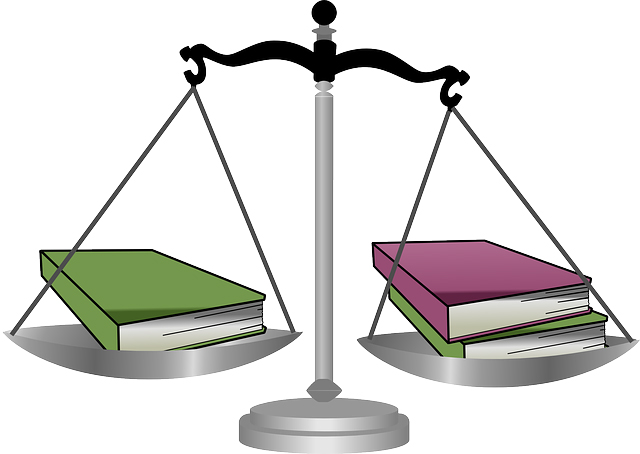Plea Bargain in Las Vegas Court
What is a plea bargain?

A plea agreement, also known as a plea bargain or plea deal, is an arrangement that you and your attorney make with the prosecution where you admit guilt to a lesser charge to receive a lighter sentence.
Not all cases are eligible for plea agreements. To discuss the facts of your case and to learn about legal options available to you, call a criminal defense attorney at Heshmati & Associates at 702-432-1000.
According to USCourts.gov, in criminal cases, more than 90 percent of defendants enter into plea deals rather than go to trial.
Plea bargain: Pros and cons
There are many reasons why a defendant may decide to make a deal with prosecution instead of going to trial. Trials can last for years, attract a lot of unwanted attention, bring anxiety and uncertainty, and sometimes result in harsh sentencing. On the contrary, plea bargaining works fast and limits the exposure of a harsh sentence. With plea deals, the arrested can get a somewhat reduced sentence, and all involved parties can go on with their lives.
Plea bargain: What to expect?
A defendant, his criminal defense lawyer and the prosecutor may decide that a plea bargain is the best way to resolve the case. A plea bargain means that the prosecution and defense lawyer work out a deal where the defendant agrees to plead guilty, often to a lesser charge. In exchange for the guilty plea, the defendant is given a less harsh sentence and may have other related charges dismissed. By entering into a plea deal, you may have reduced fines, have reduced jail time, and accept a lesser charge.
Benefits of a reduced charge
Getting a charge reduced from a felony to a misdemeanor can be very beneficial. In Nevada, if you are a felon, you cannot hold certain professional licenses; future employers may not want to hire you, you lose the right to own or possess firearms; you face deportation from the United States; you may encounter child custody issues with a bitter former spouse, and you lose the right to vote.
Also, if you testify as a witness in criminal or even civil court, your felony criminal history may become a topic of cross-examination, and your testimony can be discredited based on your past behavior.
Factors affecting the plea deal
Plea bargains are not always offered in criminal cases. Prosecutor considers many factors before making the decision to negotiate a plea deal, including:
- The seriousness of the alleged crime
- The weight of the evidence against the defendant
- The probability of the jury finding the defendant guilty at trial
Important to remember: Plea bargaining requires that a defendant waive certain constitutional rights such as the right to a jury trial, the right against self-incrimination, and the right to confront witnesses.
If I plead guilty, will I have a criminal record?
Yes. A guilty plea results in a criminal conviction; the defendant's guilt is established just as it would be after a trial. This conviction will show up on the defendant's criminal record (or rap sheet). You can seal your criminal record later. Nevada law (NRS 179.245) allows for convictions of most crimes to be sealed after specified waiting periods have been met.
Can I appeal a plea deal?
Appealing a plea bargain is difficult. Because plea bargains are voluntarily entered the only way to get out of the deal is to assert that your attorney or the state attorney misrepresented or omitted an essential fact in the agreement.
Can I go to trial after accepting a deal?
You can withdraw a plea agreement under specific and very limited circumstances. Withdrawing a plea is very complicated. We could write a whole page on it and still didn't cover everything. Call us at 702-432-1000 with any questions you may have.
Can a judge overrule a plea agreement?
Yes. The judge does not have to accept a deal the prosecution makes with a defendant. The deal is a recommendation of the prosecutor to the judge, but the judge can disagree with the terms of the deal and decide on a different sentence.
Types of plea bargains
There are three types of plea bargains.
- Charge Bargaining
- Sentence Bargaining
- Facts Bargaining
Charge Bargaining. The defendant agrees to plead guilty in exchange to a lesser charge.
Sentence Bargaining. The defendant agrees to plead guilty in exchange for a shorter sentence.
Facts Bargaining. Most attorneys do not recommend the fact bargains.
Arraignment - the first court appearance
The arraignment is a brief formal process. During the arraignment, the judge usually will:
- Read the criminal charge or charges against the defendant;
- Ask the defendant if he or she has a criminal defense lawyer;
- Ask the defendant to enter a plea of "not guilty," "guilty," or "no contest";
- Possibly revise or reduce bail or release the defendant on his or her recognizance or good behavior; and
- Set the dates for future proceedings in the case.
We can help
Before entering any plea agreement, it is imperative to consult an excellent criminal defense attorney. An attorney knows how the legal system works, can negotiate more favorable sentencing and often reduce the charges.
However, the final decision on whether or not to plead rests with you; defendants have a right to a fair trial if they want one.
If you have any further questions about plea bargaining or the prosecutor is offering you a deal, please do not hesitate to contact a criminal defense attorney at Heshmati & Associates at 702-432-1000 to discuss your case.
The Law Offices of Heshmati & Associates represent clients in Las Vegas, Henderson, North Las Vegas, Summerlin South, Boulder City, Laughlin, Mesquite, Clark County, and throughout the surrounding areas of Nevada.
Walk-ins are welcome.
The initial consultation is free.
Payment plans are available.
Written by Parviz Heshmati, Esq.
Additional Resources:
Plea Bargain
What is a plea bargain?. This article covers the pros and cons of plea bargaining, the plea bargain process, and laws. Also, plea bargain as a contract between the prosecutor and the defendant.
Plea bargain statistics in the US. More than 90 percent of defendants plead guilty rather than go to trial.

